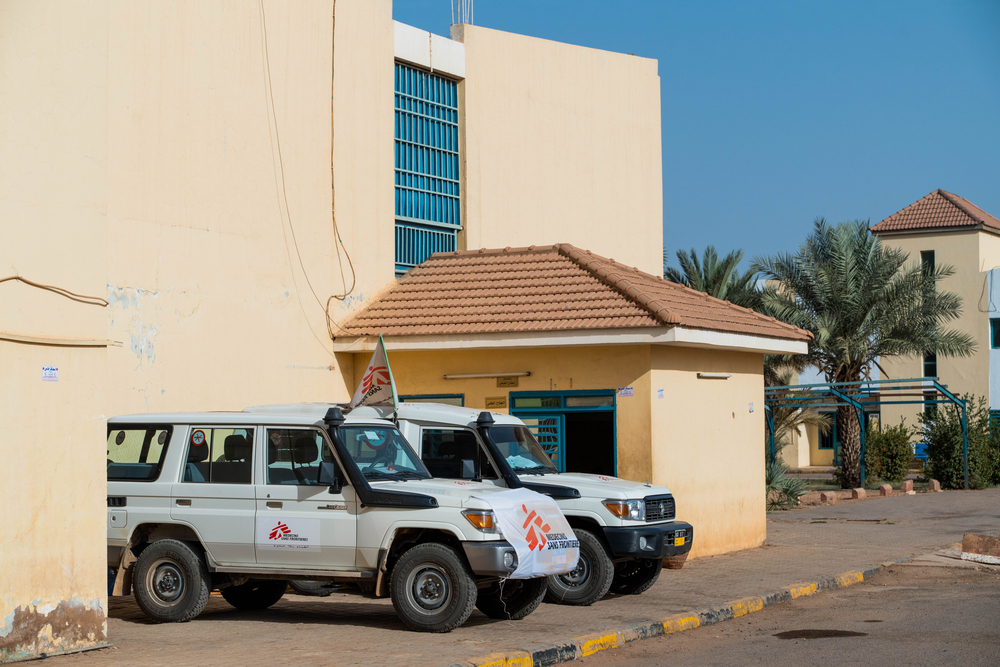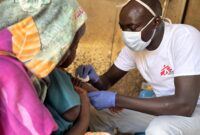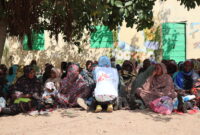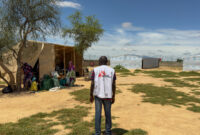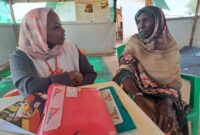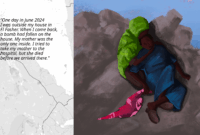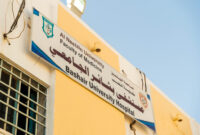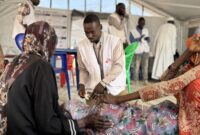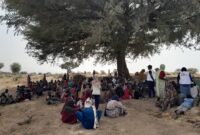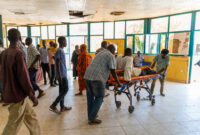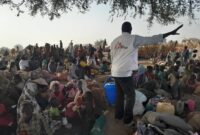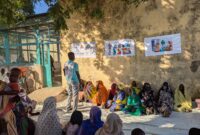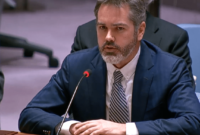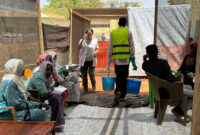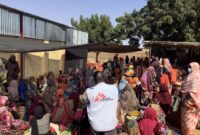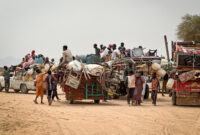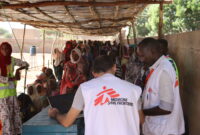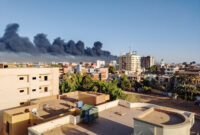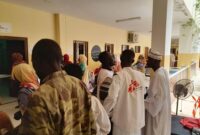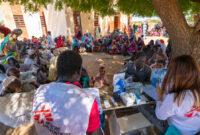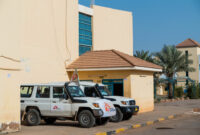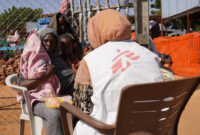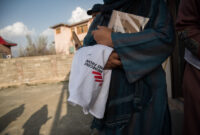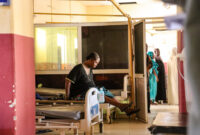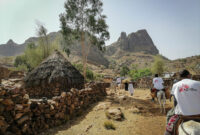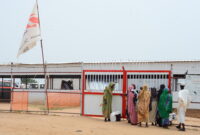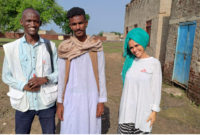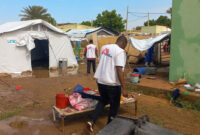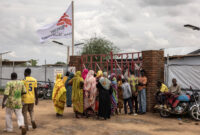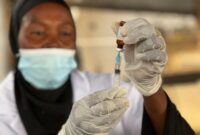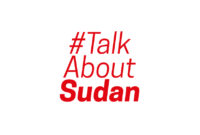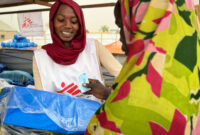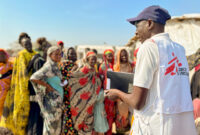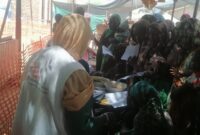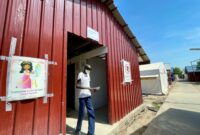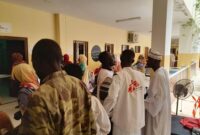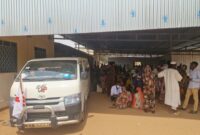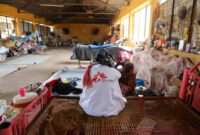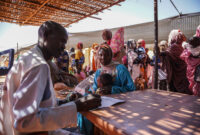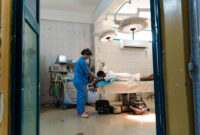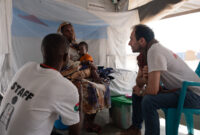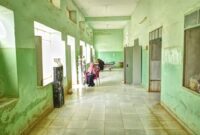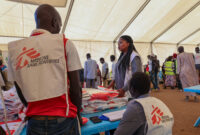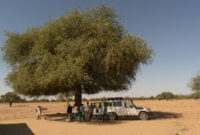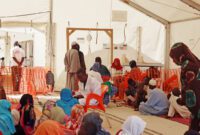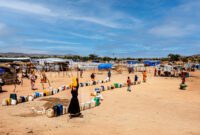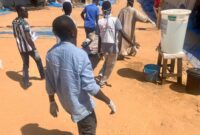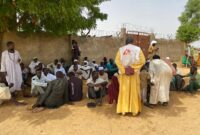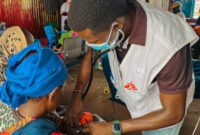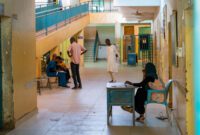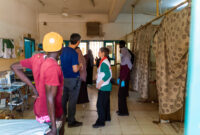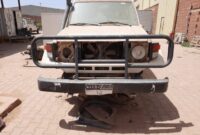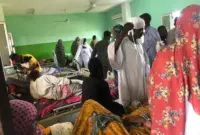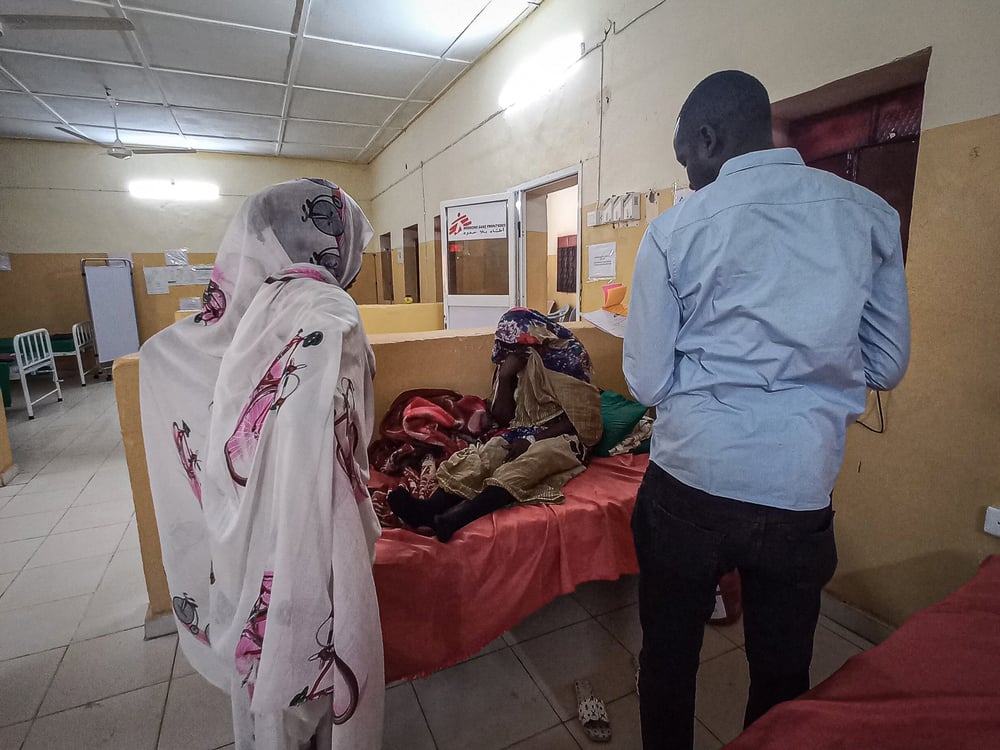From West Darfur to Chad: An MSF Logistician’s Journey Through Conflict
El Geneina is a word that translates to “the garden” in Arabic, but the meaning lacks alignment with the current harsh reality that people there have recently been living through. It is estimated that at least around 500 people have been killed since the fighting began, and that a similar number of wounded remain trapped in the city, unable to access lifesaving treatment. No one can get into the city to help them, and no one can get them out. MSF has a surgical team waiting in Adré, Chad, but evacuation of the patients is currently impossible due to the ongoing fighting.
El Geneina is the capital of West Darfur State and has been grappling with decades of violence and displacement. In the initial days of the current conflict, El Geneina remained calm, suggesting that the violence might not reach it. However, on April 24, heavy fighting erupted between the warring parties, in addition to the youth from different communities who took up arms in self-defence. This resulted in clashes and the theft of resources. Given the area’s mixed population and lack of clear community-based control, it quickly became a hotspot for intense fighting and frequent acts of looting.
The residents of El Geneina found themselves caught in a tidal wave of violence and insecurity, their lives endangered not just by the fighting, but also by their inability to access healthcare. This is affecting all demographics: pregnant women, children, and anyone seeking medical care. Adding to their daily challenges, people are dealing with limited access to basic necessities like drinking water.
For the past few years, our teams were supporting El Geneina’s Teaching Hospital, the main health facility in West Darfur. This hospital not only served the people of El Geneina but also the rest of West Darfur. On April 26, the hospital was looted and is currently out of service, including departments that our teams supported. During the first days of the conflict, MSF team at El Geneina Teaching Hospital managed to provide the remaining supply of medications to various communities. However, as the situation worsened, the hospital’s infrastructure was attacked, and it was no longer able to function. Our teams have not been able to access the hospital, nor have they been able conduct mobile clinic activities in the nomadic communities of Galala, Mogshasha, Wadi Rati and Gelchek. We have been able to continue providing services in Kreinik hospital, but it is running out of supplies.
Moussa Ibrahim, our logistics supervisor in El Geneina crossed into Adré, Chad, a few days ago to oversee activities with MSF teams and assess potential logistical support for West Darfur.
“Since July 2021, I have held the position of logistics supervisor with MSF and have been living in El Geneina. My visit to Chad was necessitated by the communications blackout that we have been experiencing due to internet and communications means disruptions. It also aimed to closely establish coordination with the MSF teams based in Adré, who have been on standby and ready to intervene and support local initiatives wherever possible.
The path from El Geneina to Chad is riddled with dangers as armed groups often patrol and can stop you on your route. There is no guarantee of security. The consequences of the escalating conflict are devastating, with attacks on humanitarian organisations, police headquarters where weapons were stolen, and civilian locations like the local market and the main university.
In these harrowing circumstances, the hospital we supported was also looted. All the medical materials were taken, and parts of the hospital were destroyed.
As a humanitarian logistician, it’s heartbreaking to witness our efforts developed over the years now shattered. For years, MSF provided medical assistance to all communities in West Darfur, who, due to frequent violent disturbances, would otherwise have no access to healthcare.
In El Geneina Teaching Hospital, MSF managed the paediatric and nutrition inpatient departments, infection prevention control measures, and water and sanitation services. Over the years we witnessed a steady stream of patients coming not just from El Geneina city and the nearest camps for displaced families, but from all over West Darfur.
Movement in city is currently limited to proximity around one’s house due to the risk of random shootings, snipers, and carjackings. Access to basic necessities like water is burdened with danger, and the task of retrieving bodies from the streets has become impossible. During the first days of the fighting, the Red Crescent was able to collect deceased bodies from the streets. However, as the situation worsened, it became impossible to continue this, leaving the bodies uncollected. Five days ago, access was finally gained but by that point the bodies had decomposed to the extent that they couldn’t be removed. Now, the best that can be done is to gather the bodies in a single location.
This situation is unbearable and requires urgent intervention. The negotiations between community leaders and all warring parties must be ensured to bring an end to this horrific situation. Most NGOs have left, but in order to facilitate humanitarian operations by those who have managed to remain in different parts of Sudan, including our teams, who are committed to providing much-needed healthcare to the people, sparing the civilian lives and ensuring the safety of medical personnel and health facilities are an absolute humanitarian imperative.
Despite the circumstances, my stay in Chad was brief as I needed to return to my family in El Geneina.
Nevertheless, the situation remains dire, and urgent action is necessary to ensure the safety of El Geneina’s people and health workers.”
